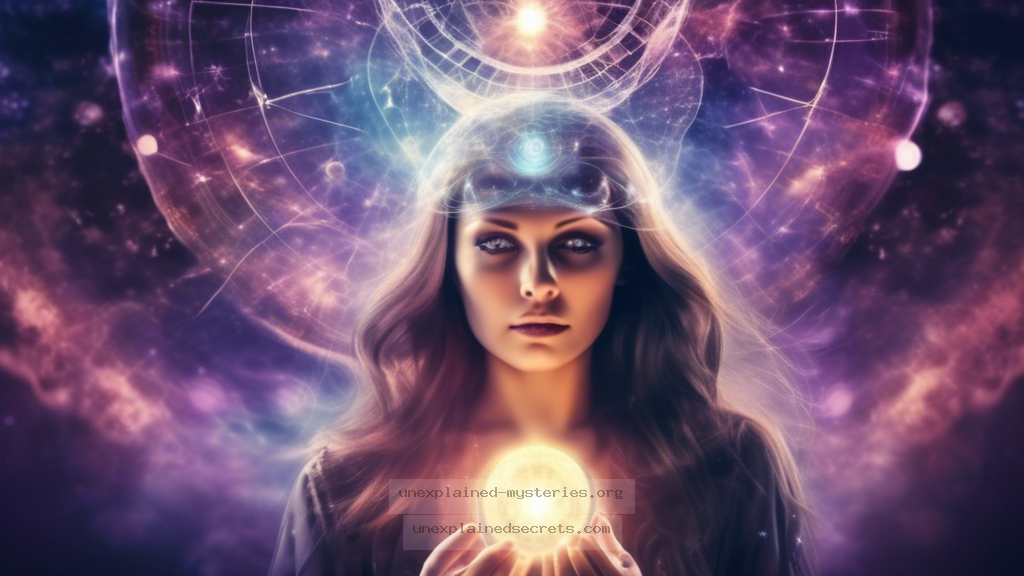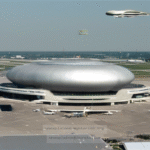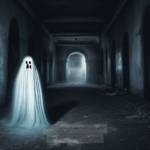Can Psychic Abilities Really Predict Future Events? An In-Depth Exploration
Can Psychic Abilities Really Predict Future Events? An In-Depth Exploration
The realm of psychic abilities has long captivated human curiosity, raising questions about the extent to which individuals can perceive or predict future events. This question is not just a matter of intrigue; it has profound implications for understanding consciousness, the nature of reality, and the boundaries of human potential. In this post, we will delve into documented cases, scientific studies, and alternative perspectives surrounding the possibility that psychic abilities can indeed predict future occurrences.
Historical Context of Psychic Phenomena
The fascination with psychic abilities is not a modern phenomenon; it has roots in ancient history. From the oracles of Delphi in ancient Greece to the seers of the Roman Empire, individuals claiming to possess foresight have been integral to many cultures. Throughout history, these figures often held significant sway in political and social decision-making. The concept of precognition—the ability to perceive or predict future events—has been documented in various cultures, leading to a rich tapestry of beliefs surrounding psychic phenomena.
In the 19th century, the rise of spiritualism brought psychic abilities to the forefront of Western society. Mediums and clairvoyants became popular, claiming to communicate with spirits and predict future events. Such claims were often met with skepticism, leading to investigations by scientists and philosophers alike. These historical accounts provide a backdrop for understanding the ongoing debate regarding the validity of psychic predictions and their implications for contemporary society.
Core Concepts of Psychic Abilities
Psychic abilities encompass a range of phenomena, including clairvoyance, telepathy, and precognition. Precognition, in particular, refers to the ability to perceive future events before they occur. This phenomenon can manifest in various ways, such as dreams or sudden insights. Many individuals report experiencing precognitive dreams or gut feelings that later align with actual events, prompting further investigation into this mysterious aspect of human experience.
One of the foundational theories regarding psychic abilities is the concept of a collective unconscious, proposed by Carl Jung. Jung suggested that individuals share a vast reservoir of experiences, memories, and symbols, which may enable them to tap into future possibilities. This idea raises intriguing questions about whether psychic abilities can be understood through scientific inquiry or if they exist beyond the limits of conventional knowledge.
Scientific Studies and Evidence
Despite widespread skepticism, numerous scientific studies have sought to explore the validity of psychic predictions. One well-known experiment conducted by Dr. Daryl Bem at Cornell University investigated the phenomenon of retroactive clairvoyance. Bem’s studies suggested that participants could predict the outcomes of random events, such as the location of a hidden image on a computer screen. His findings sparked significant debate within the scientific community, leading to discussions about the implications of such results on our understanding of time and consciousness.
Another notable study was conducted by the Princeton Engineering Anomalies Research (PEAR) lab, which explored the potential influence of human consciousness on random number generators. The researchers found that participants could affect the outcomes of these generators, raising questions about the interconnectedness of consciousness and reality. While these studies do not definitively prove the existence of psychic abilities, they highlight intriguing possibilities that warrant further investigation.
Real-World Examples of Precognitive Experiences
Many individuals have reported personal experiences of precognition, adding anecdotal evidence to the discussion. One famous case involves the Titanic disaster; several individuals claimed to have had dreams or premonitions about the ship’s sinking prior to the event. For instance, author Morgan Robertson wrote a novella titled “Futility” in 1898, which depicted a ship named the Titan that struck an iceberg and sank. The similarities to the Titanic disaster were striking, leading some to speculate about the nature of precognition.
Another compelling case is that of Dr. J. W. Dunne, an early 20th-century writer and aeronautical engineer who claimed to have experienced precognitive dreams. In his book “An Experiment with Time,” Dunne described how his dreams often foreshadowed actual events. His writings prompted both scientific inquiry and public interest, further solidifying the notion that psychic abilities may play a role in predicting future occurrences.
Alternative Perspectives on Psychic Predictions
While many support the idea that psychic abilities can predict future events, skeptics argue that such occurrences can be attributed to coincidence, confirmation bias, or psychological phenomena. Confirmation bias occurs when individuals selectively recall information that supports their beliefs while disregarding contradictory evidence. For example, if someone has a dream about a future event and that event later occurs, they may remember the dream vividly while forgetting other dreams that did not come true.
Moreover, critics often advocate for a scientific approach to understanding psychic phenomena, emphasizing the importance of rigorous testing and empirical evidence. The lack of replicable results in many psychic experiments has fueled skepticism, leading to calls for more thorough investigations that adhere to traditional scientific standards. This perspective underscores the necessity for a balanced exploration of psychic phenomena that considers both anecdotal experiences and rigorous scientific inquiry.
Common Misconceptions About Psychic Abilities
Psychic abilities are often shrouded in myths and misconceptions that can cloud public understanding. One common misconception is that all psychics can predict the future with absolute certainty. In reality, many individuals who claim to have psychic abilities experience varying degrees of accuracy and often rely on intuition rather than definitive predictions. This variability can lead to disillusionment among those who seek precise answers.
Another misconception is that psychic abilities are strictly linked to the supernatural or paranormal. While many individuals view psychic phenomena through a spiritual lens, there is a growing movement advocating for a scientific approach. This perspective seeks to explore psychic abilities as potential extensions of human consciousness rather than relegating them solely to the realm of the mystical.
Best Practices for Investigating Psychic Phenomena
For those interested in exploring psychic phenomena, whether as practitioners or researchers, adopting best practices can enhance the understanding and credibility of psychic abilities. Here are some guidelines to consider:
- Maintain an Open Mind: Approach investigations with curiosity and openness to various possibilities.
- Document Experiences: Keep a detailed record of any psychic experiences, including dates, contexts, and outcomes.
- Engage in Controlled Studies: For researchers, conducting controlled experiments with clear protocols can yield more reliable data.
- Collaborate with Diverse Perspectives: Engaging with individuals from different backgrounds can enrich the investigation and provide multifaceted insights.
Future Developments in Psychic Research
As interest in psychic phenomena continues to grow, future developments in research may shed light on the mechanisms behind psychic abilities. Advances in neuroscience and psychology could provide insights into the workings of the human brain and consciousness, potentially linking them to psychic experiences. Emerging technologies, such as neuroimaging, may enable researchers to explore the neural correlates of psychic phenomena, paving the way for a deeper understanding of the nature of reality.
Additionally, ongoing discussions surrounding quantum physics may also influence perceptions of psychic abilities. Concepts such as non-locality and entanglement challenge traditional notions of time and space, suggesting that the universe may operate in ways that align with the principles of psychic phenomena. As scientific inquiry progresses, the relationship between psychic abilities and consciousness may become clearer, offering exciting possibilities for the future.
Conclusion: The Enigmatic Nature of Psychic Predictions
The question of whether psychic abilities can predict future events remains a captivating enigma. Throughout history, individuals have claimed to experience precognition, leading to numerous documented cases and scientific studies that explore this phenomenon. While skepticism persists, the potential implications of psychic abilities for understanding consciousness and reality are profound.
By examining historical context, core concepts, and real-world examples, we can appreciate the complexity of psychic phenomena. As future research continues to unfold, it may reveal new insights into the nature of human consciousness and the mysteries that lie beyond our current understanding. Exploring psychic abilities not only enriches our understanding of the human experience but also invites us to consider the boundaries of perception and the interconnectedness of all existence.
Other Articles
Recent Posts
- What Happened to Flight MH370? The Conspiracy Theories That Still Haunt Us
- What Secrets Lurk Within the Walls of the Infamous Trans-Allegheny Lunatic Asylum?
- What Evidence Supports the Existence of Bigfoot in the Pacific Northwest?
- What Happened to the Indus Valley Civilization? Unraveling the Mysteries of Ancient Urban Life
- Can Telepathy Be Scientifically Proven Through Laboratory Evidence?







